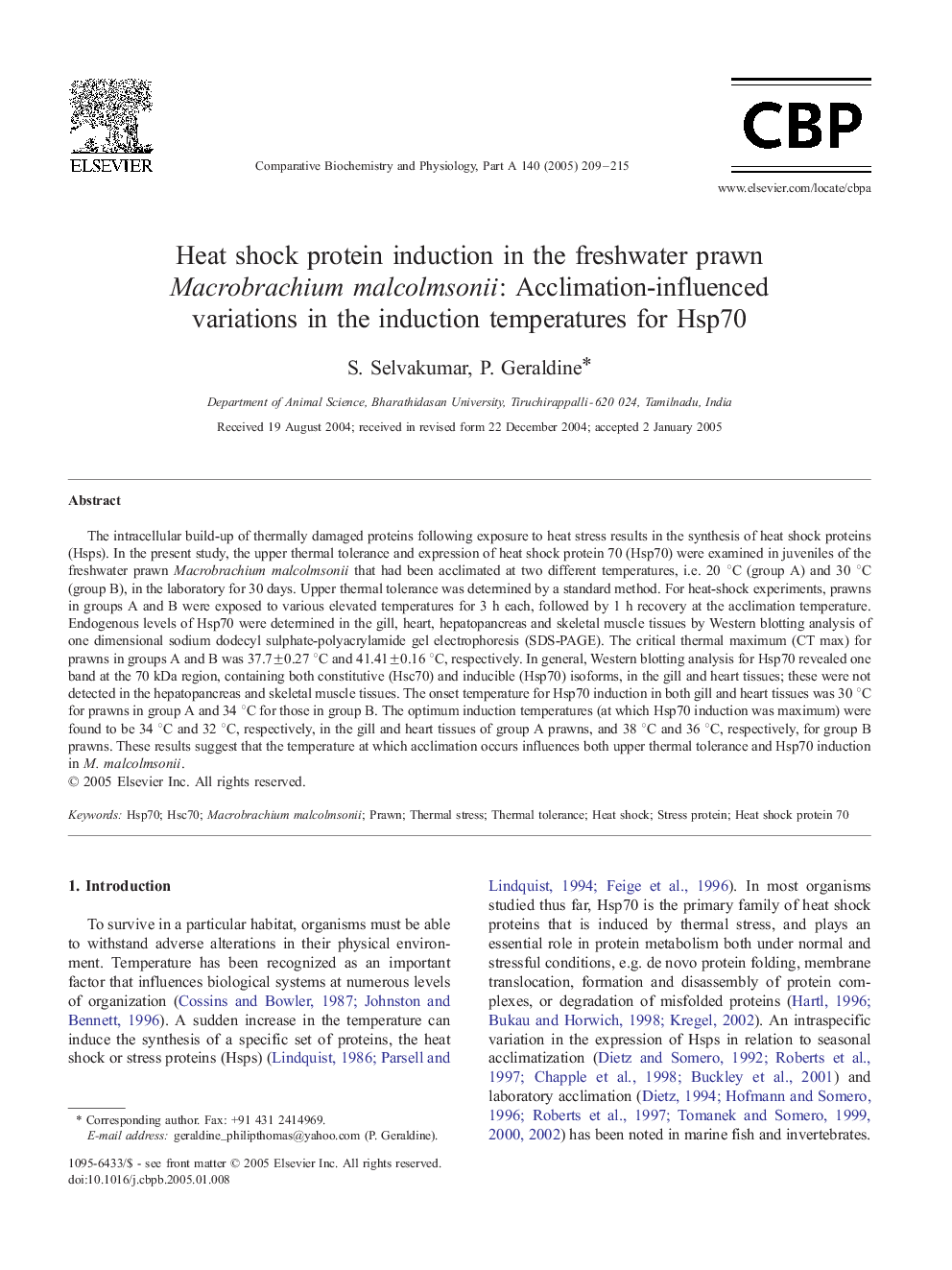| Article ID | Journal | Published Year | Pages | File Type |
|---|---|---|---|---|
| 10819184 | Comparative Biochemistry and Physiology Part A: Molecular & Integrative Physiology | 2005 | 7 Pages |
Abstract
The intracellular build-up of thermally damaged proteins following exposure to heat stress results in the synthesis of heat shock proteins (Hsps). In the present study, the upper thermal tolerance and expression of heat shock protein 70 (Hsp70) were examined in juveniles of the freshwater prawn Macrobrachium malcolmsonii that had been acclimated at two different temperatures, i.e. 20 °C (group A) and 30 °C (group B), in the laboratory for 30 days. Upper thermal tolerance was determined by a standard method. For heat-shock experiments, prawns in groups A and B were exposed to various elevated temperatures for 3 h each, followed by 1 h recovery at the acclimation temperature. Endogenous levels of Hsp70 were determined in the gill, heart, hepatopancreas and skeletal muscle tissues by Western blotting analysis of one dimensional sodium dodecyl sulphate-polyacrylamide gel electrophoresis (SDS-PAGE). The critical thermal maximum (CT max) for prawns in groups A and B was 37.7±0.27 °C and 41.41±0.16 °C, respectively. In general, Western blotting analysis for Hsp70 revealed one band at the 70 kDa region, containing both constitutive (Hsc70) and inducible (Hsp70) isoforms, in the gill and heart tissues; these were not detected in the hepatopancreas and skeletal muscle tissues. The onset temperature for Hsp70 induction in both gill and heart tissues was 30 °C for prawns in group A and 34 °C for those in group B. The optimum induction temperatures (at which Hsp70 induction was maximum) were found to be 34 °C and 32 °C, respectively, in the gill and heart tissues of group A prawns, and 38 °C and 36 °C, respectively, for group B prawns. These results suggest that the temperature at which acclimation occurs influences both upper thermal tolerance and Hsp70 induction in M. malcolmsonii.
Keywords
Related Topics
Life Sciences
Biochemistry, Genetics and Molecular Biology
Biochemistry
Authors
S. Selvakumar, P. Geraldine,
